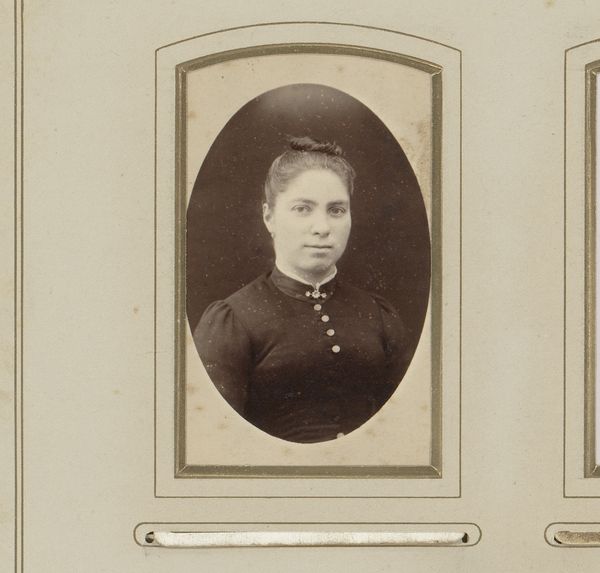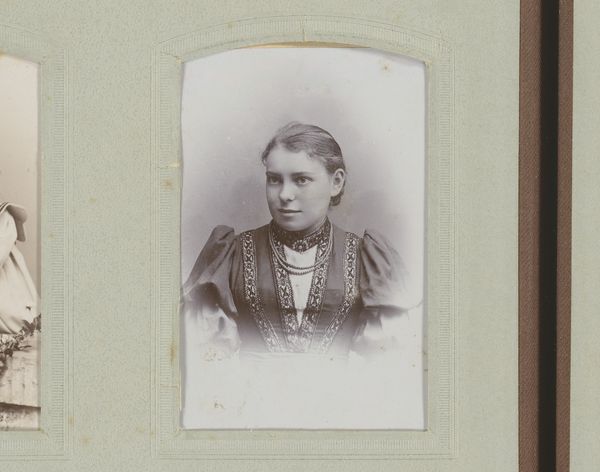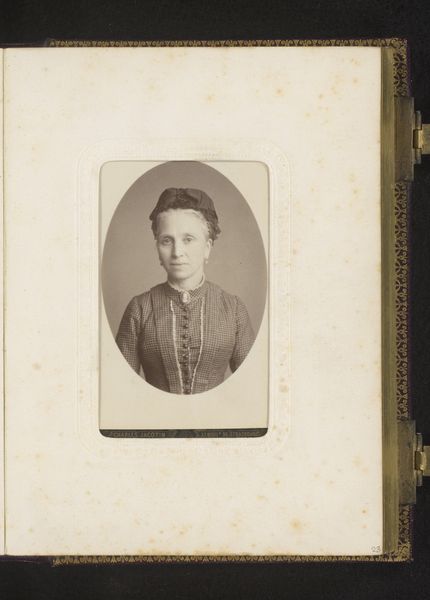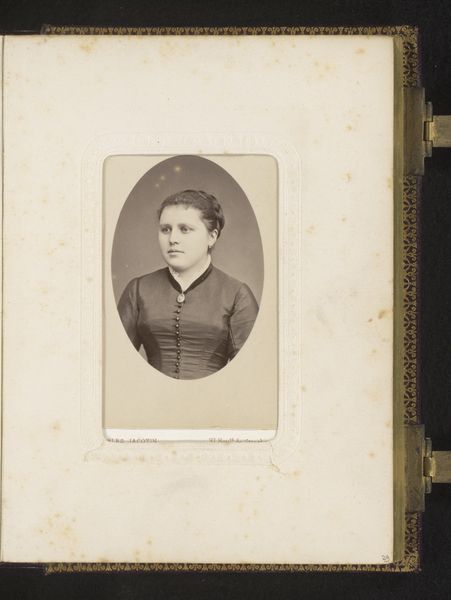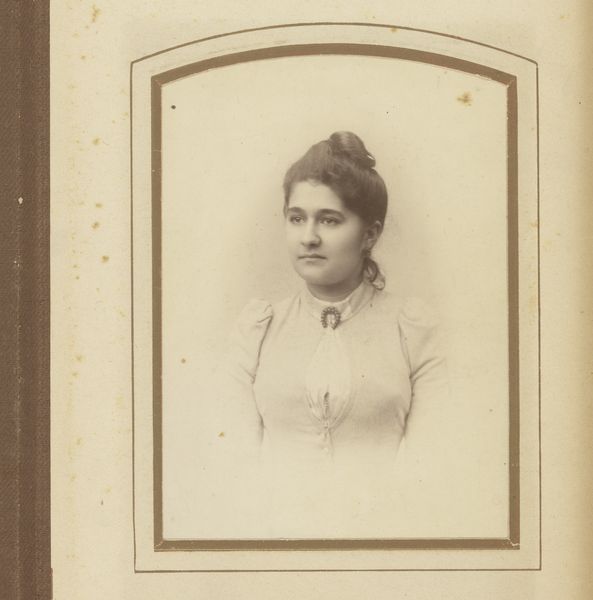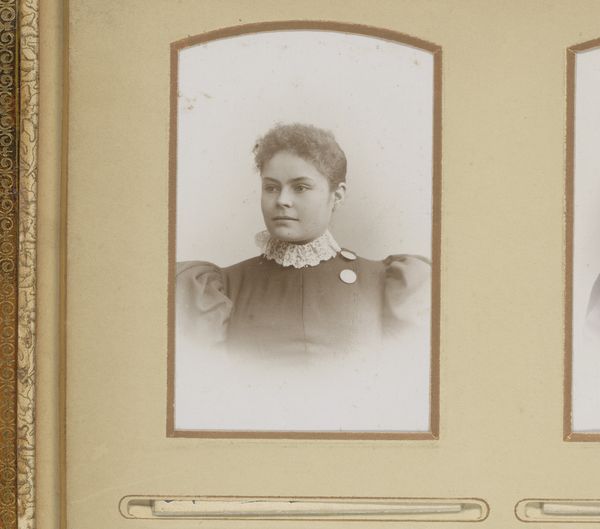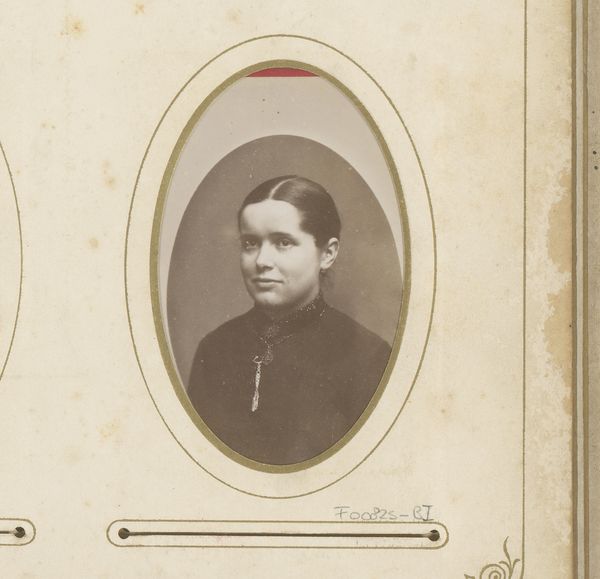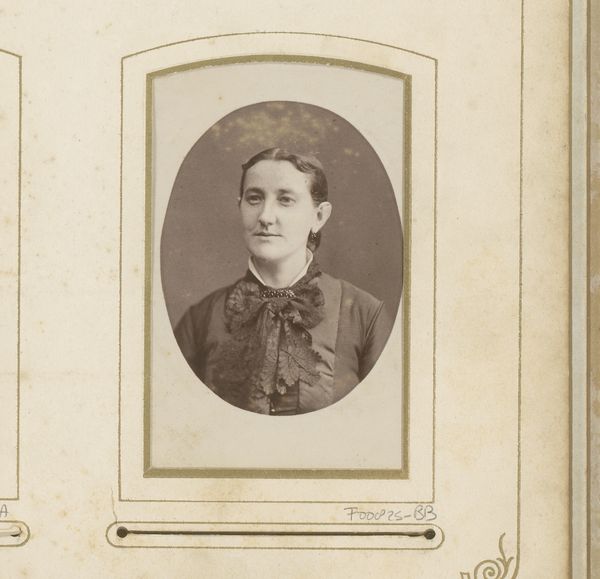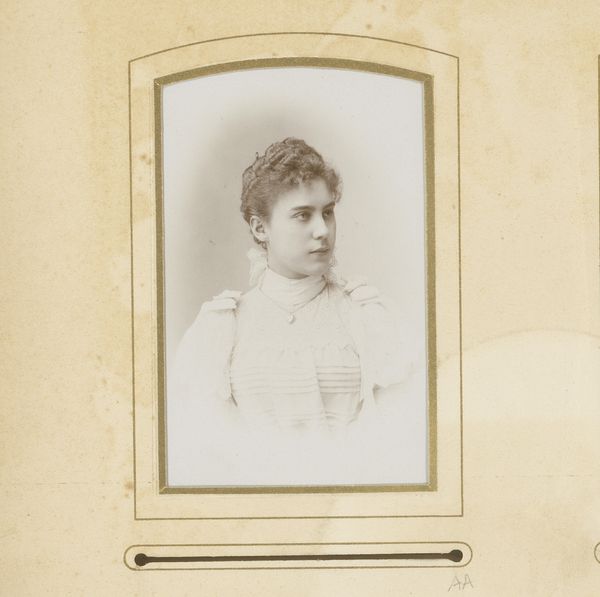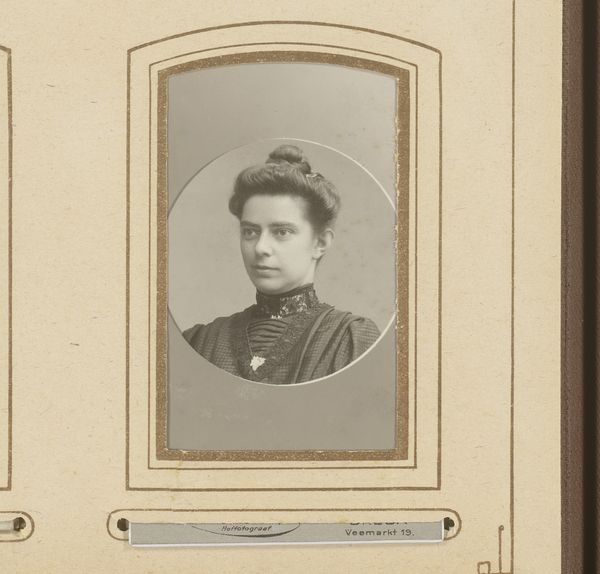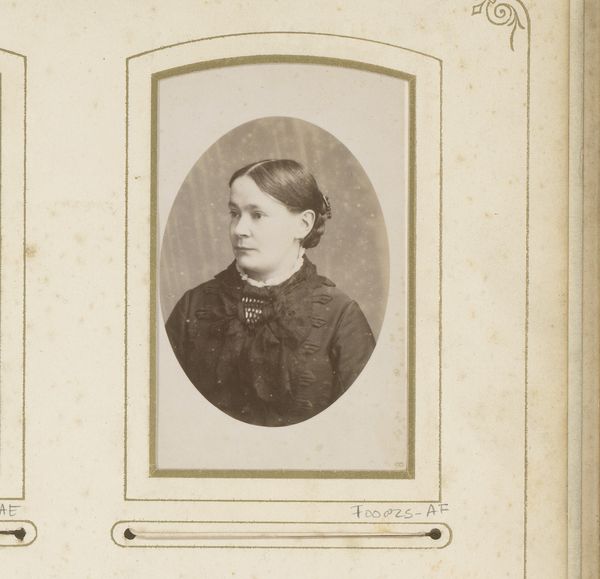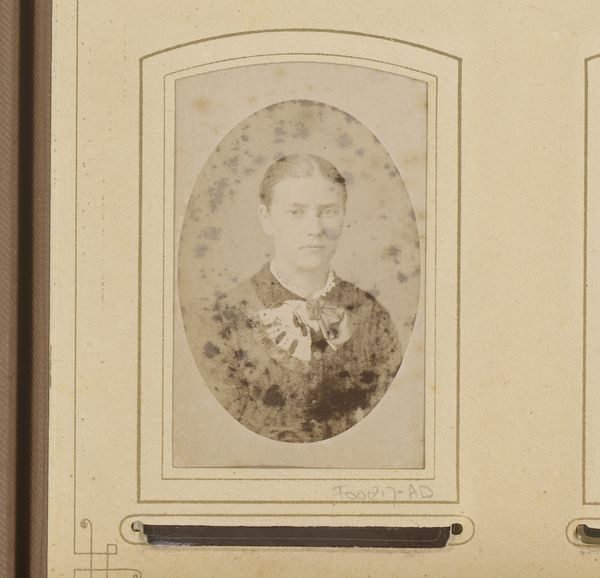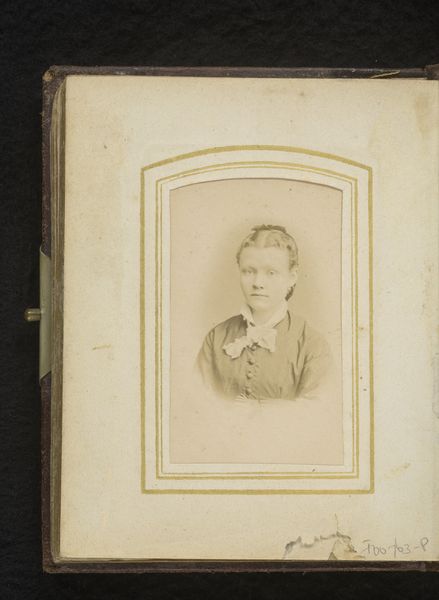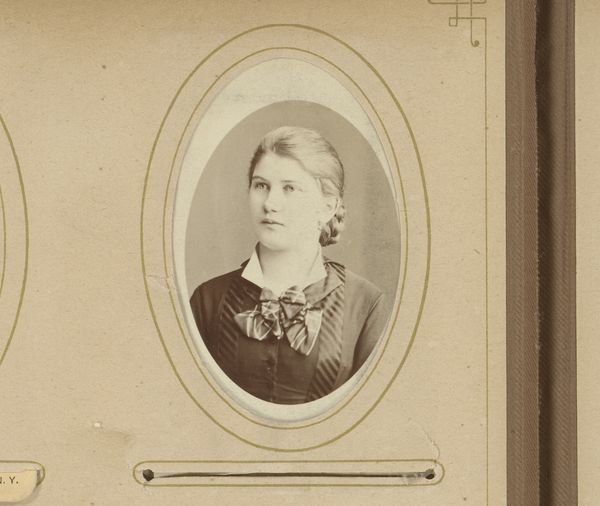
photography, gelatin-silver-print
#
portrait
#
photography
#
gelatin-silver-print
Dimensions: height 83 mm, width 53 mm
Copyright: Rijks Museum: Open Domain
Max Büttinghausen made this portrait of a girl with a necklace using a photographic process. Unlike painting or sculpture, photography hinges on a chemical reaction. The specific method used here, albumen print, was popular because of its sharp detail and glossy surface. The material of photography is light itself, harnessed through lenses and captured on specially treated paper. The process involves coating paper with albumen, derived from egg whites, and silver nitrate, making it light-sensitive. When exposed to light through a negative, an image gradually appears. The print is then washed, toned, and fixed to prevent further reaction. These techniques, though now largely obsolete, were essential for creating visual records and spreading images widely, impacting social and cultural perceptions. Photography democratized portraiture, making it accessible to a broader public, not just the wealthy. Understanding these processes and their social context adds depth to our appreciation of this work, moving beyond the traditional focus on artistic skill alone.
Comments
No comments
Be the first to comment and join the conversation on the ultimate creative platform.
